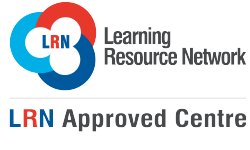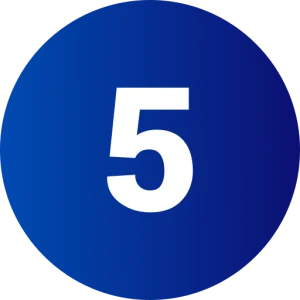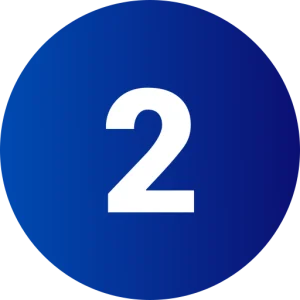LRN Level 3 Diploma in Early Years Education (Early Years Educator)
The LRN Level 3 Diploma in Early Years Education (Early Years Educator) is designed to enable candidates to care for children aged 0 – 5 years and gain knowledge of children aged 5 to 7 years

Modules
-
1. Planning and Providing Effective Early Years Education
-
2. Ensuring Inclusive Practices In Early Years Education
-
3. Protecting and Promoting the Safety and Wellbeing of Children
-
4. Promoting Health, Safety and Welfare of Children
-
5. Building Effective Relationships to Support Children's Development
-
6. Reflecting on Professionalism and Continuous Development
Aims & Objectives
- Provide comprehensive understanding of developmental stages from birth to age 5.
- Teach strategies for safe, inclusive, and engaging spaces that meet diverse child needs.
- Enhance ability to interact effectively with children, families, and colleagues.
- Promote ongoing self-assessment and adaptation to sector changes.
- Equip learners with essential knowledge and qualifications for professional growth.
Eligibility Criteria
for Admission

Qualification Level
GCSE or equivalent, or Level 2 qualification in any field and Grade C or equivalent in English and Mathematics

Teaching Setting Requirement
Continuous access to an early years setting for evidence collection, maintaining a reflective practice log, and documenting experiences aligned with 6 learning outcomes.

Language Requirement
Candidates must have good English proficiency level
Why Choose FAHEM
Self-Development
- Qualifies you as a professional educator
- Enhances classroom delivery and fosters inclusivity and adaptability
- Covers various aspects from philosophy, assessment and modern pedagogy
- Provides a comprehensive understanding of education, offering learners a holistic perspective


International Employability
- The Learning Resource Network (LRN), an acclaimed awarding body recognized by Ofqual-UK, grants this qualification
- You become eligible for various teaching and academic roles worldwide.
- It significantly boosts your employability nationally and internationally by providing specialized knowledge, advanced teaching techniques, and recognized
Academic Progress
- Those availing the Level 3 qualification (Diploma in Early Years Education) may progress either to Level 4/5 qualification or work as an early years educator within settings or schools


Cost Effective
- Offers affordability compared to similar qualifications in the market, maintaining high-quality education and delivery at a minimal cost.
- Payment can be conveniently be made in installments, ensuring accessibility for students
LRN Level 7
Course Outline
Philosophy of education and theories of learning and teaching
Aim
The purpose is to enable learners to demonstrate an understanding within inclusive and varied teaching and learning environments. Learners will apply their knowledge and understanding in effectively evaluating and reflecting on future practice.
Learning Outcomes
- Understand the historical, philosophical and cultural context of education
- Examine the history and purpose of education.
- Analyse the aim and values of education.
- Evaluate the culture, social and economic values of education.
- Analyse the concept of educational philosophy in relation to curriculum development.
- Understand key concepts, values and beliefs related to education and educational practice
- Assess the benefits of applying sound education theory in professional practice.
- Analyse critical educational concepts and values across educational settings.
- Distinguish between education and educational practice.
- Understand key theories of education and learning and how these are realized in practical pedagogy
- Evaluate higher education theory and the impact on learning and development.
- Justify the inclusion of education theory in educational settings.
- Analyse reasons for implementing change and effective teaching pedagogy.
- Assess andragogical theory and its impact on learning and development.
Delivering effective teaching and learning and understanding educational assessment
Aim
The purpose is to enable learners to demonstrate an understanding of learning theories and practical teaching pedagogy. Learners will develop a range of resources, based on learner needs, to support teaching and development across educational settings.
Learning Outcomes
- Understand how educational theory aligns with teaching delivery
- Assess the linkages between educational theory and teaching delivery.
- Analyse the benefits of inclusive learning in relation to effective curriculum design.
- Recommend ways in which educational theory can be embedded in classroom pedagogy.
- Evaluate how learner needs influence curriculum design, teaching and delivery styles.
- I’d like you to please understand the relationship between teaching, learning, and assessment.
- Analyse the benefits of effective planning in teaching and learning.
- Evaluate the interdependencies between teaching, learning, achievement, and attainment.
- Assess a range of factors that influence learner achievement.
- Be able to demonstrate a practical application of effective teaching delivery
- You can evaluate your teaching style and delivery approach to make a compelling teaching plan.
- Analyse own practice in order to enhance teaching and learning delivery.
- Adapt your own teaching approach based on a realisation of continuing professional development.
Contemporary teaching in higher and professional education
Aim
The purpose is to enable learners to demonstrate an understanding of the core issues, strategies and techniques in teaching in higher and professional education. Learners will explore the purpose, meaning and inter-relationships between teaching pedagogy and andragogy, relevant to their educational setting. Finally, learners will know how to vary their teaching styles in order to enable learning, advancement and understanding.
Learning Outcomes
- Understand the purpose of teaching pedagogy and teaching andragogy
- Differentiate between teaching pedagogy and teaching andragogy.
- Analyze the importance of enhancing pedagogy and andragogy into teaching practice.
- Evaluate the development of a learning system that incorporates appropriate methodologies.
- Understand current educational theories of teaching and learning
- Analyze the relationship between educational leadership and improvement in teaching and learning.
- Evaluate teaching strategies to promote leadership development in educational settings.
- Assess the purpose of adopting a reflexive and practical approach to current teaching practice.
- Be able to demonstrate a practical application of contemporary teaching in higher and professional education
- Evaluate own approach to teaching methodology, learning and assessment.
- Synthesize a range of educational theories into one’s contemporary teaching style and approach.
- Adapt own teaching in order to enhance effective planning, design and instruction.
- Apply an informed approach in reflecting own style and structure in teaching practice.

Requirements for the Course
1. Teaching Practice
Continuous access to an early years setting for evidence collection and maintaining a reflective practice log aligned with learning outcomes.
2. Assessment
Combination of LRN-set assignments and portfolio-based assessment. CPD training proof required.
3. Candidate Evaluation
LRN assesses teaching practice, qualifications, and ability to meet cognitive demands.
Key Dates

TOTAL QUALIFICATION TIME (TQT)
- Duration: 12 Months
- Credit Hours: 65
- Guided Learning Hours: 495
- Self-study Hours: 70
- Formative Assessment Hours: 50
- Summative Assessment Hours: 35

PROGRESSION
The LRN Level 3 Diploma in Early Years Education (Early Years Educator) accommodates diverse candidate backgrounds and career goals. Graduates may pursue various paths, including:
- A Level 4/5 qualification.
- Work as an early years educator within ECE settings or schools
LRN Level 3 Diploma
Admission Process











